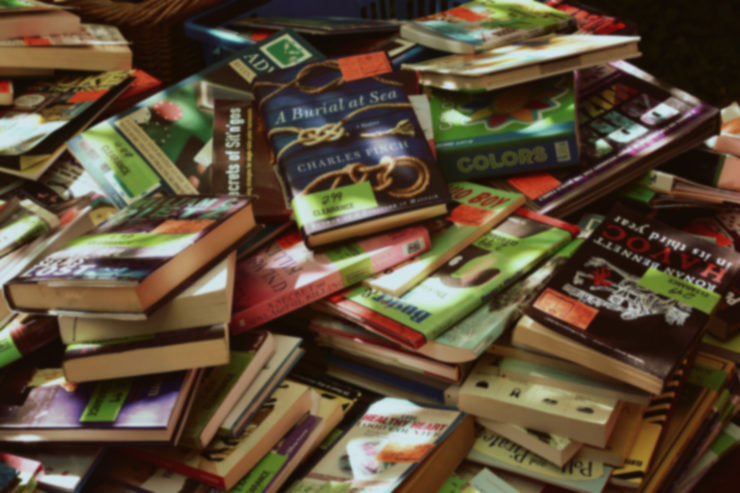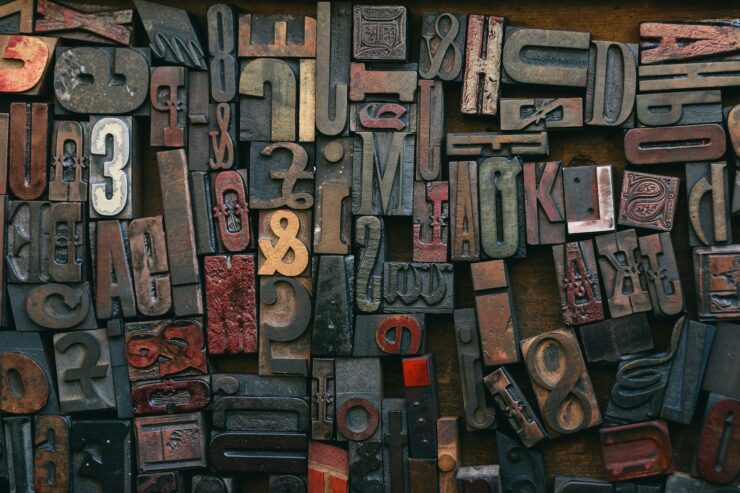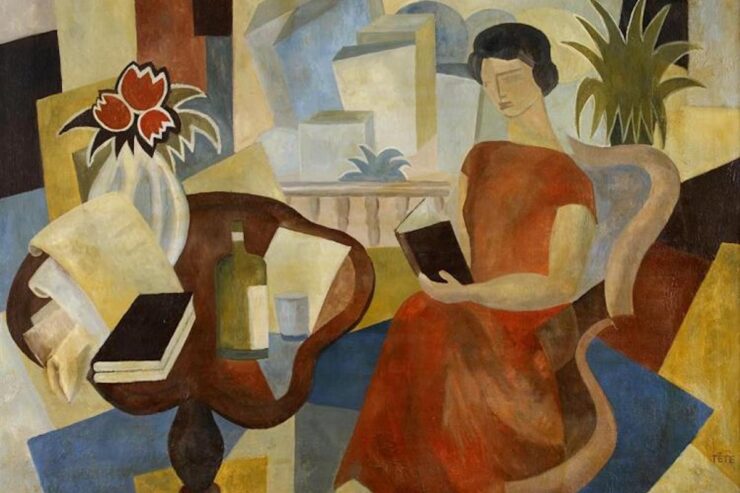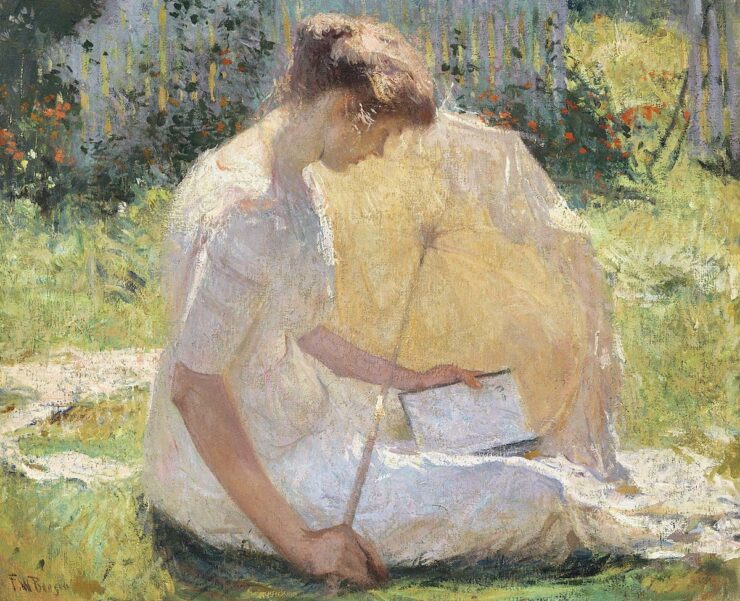There is only one tenet of book organization that I feel truly strongly about—well, beyond the fact that you should organize your books in whatever way makes the most sense for you. I cannot, absolutely cannot, shelve unread books with the ones I’ve finished.
There are upsides and downsides to this system. On the upside, I can see all the books available to me at any given moment. The unread books shelf (shelves, bookcase, let’s not split hairs here) is easy to peruse: At breakfast, I sit over my oatmeal and consider what I want to read next.
On the downside… I can see all the unread books looming in the corner at all times.
It’s a very specific sort of feeling.
At present, a Reddit thread about how many books people have in their TBR stack has nearly 400 replies. The answers range from “three or four” to the alarming relatable “I don’t think counting them would be good for my anxiety.” I am absolutely not counting. I am not even counting how many books have joined the party since I wondered, over a year ago, if it was possible to have too many unread books.
It’s a thing we readers often think about, though sometimes it’s framed in other ways: Will I have enough to read? What do I want to read next? What’s new that I’m excited about? What’s that book about? How did it end up in my shopping cart or my bookstore pile? Whoops!
I am thinking about it again because I keep thinking about TBR bankruptcy. When I sit and look at the unreads, I want to read all of them. All at once. I want to be Tilda Swinton in Only Lovers Left Alive, turning the pages and scanning the words at impossible, vampiric speed. It’s those moments when I understand the people who don’t cringe at the overuse of the word “consume.” Generally speaking, I feel quite strongly that we don’t consume books; we read them. But when I think about how many books there are and how few hours I really have to read them, I want to just shoot them straight into my brain. To eat them and understand their contents, like one of Sunyi Dean’s book eaters. Eating is faster than reading. If that’s what it takes, let me consume them all.
When you are pleasantly overwhelmed by choice, by decision fatigue, there are all kinds of games to play in your mind. One of my favorite things to consider is turning all the unread books spine-out, in an attempt to forget what’s there and surprise myself later. Maybe I just need to touch them all, to rearrange, to pull every single book off the shelf, dust them, restack them, load the sturdy bookcase up again. Maybe that’s what it takes to remember why each book is on the shelf, what I was thinking when I bought it, what role I want it to play in my mental library. The intriguing book about algae that came when I ordered a mystery trio from Print: A Bookstore. The books about cold and snow and feral girls that one specific friend always talks about, that I always want to read immediately. The nonfiction books about topics that make me mad (University of Nike, Work Won’t Love You Back) and the ones close to my heart (Girly Drinks, The Essential Ellen Willis). The books I preordered, absolutely certain I would read them the minute I arrived, still collecting dust.
The thing about TBR anxiety is that it’s not really about books. There’s a reason it perks up its little head when the days get shorter and the lure of a fire and a warm chair get stronger—when the year, despite all the weirdness of time, seems to be coming to a close, a meaningful darkness inching in. Anxiety about not being able to read all the books is anxiety about time. About choices, and lifespans, and how we spend our days; about stories that carry us and stories that make us angry and stories that feel like they were meant to slip into our minds, clever and wise and full of feelings it can sometimes be hard to really feel, these days.
Sometimes, people do the math. If I have X number of years left to live, based on the average lifespan of a human in my region of the world, and it takes me Y hours to read an average book, how many books do I have left?
How can you want to know?
Books aren’t the measure of a life. But when you’re a reader, you spend a lot of time with them. Even when I was a tiny, shy elementary school student, I wanted to be where the books were. (In the library.) The world was so much bigger than I could even begin to comprehend; I couldn’t know all the places I would want to go, things I’d want to do, people to meet, ideas to learn. But I knew that I could find far more things in books than I could in the small sphere of my world.
When you keep reading, the world keeps getting bigger.
Buy the Book
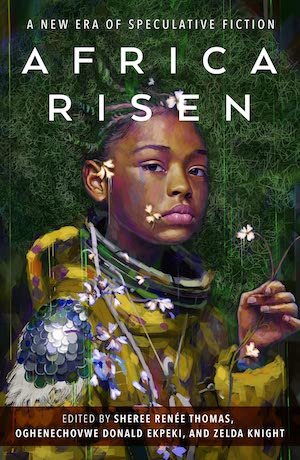

Africa Risen
When you keep buying books, or even just making lists of books, or going to bookstores, or patronizing your local library, or borrowing books from friends, or obtaining books in any number of delightful and varied fashions, the possibilities are endless.
There are, of course, always more books. To read is to change, and the idea of TBR bankruptcy—of whatever shape—is, at heart, an admission of change. An acceptance that the books purchased some time ago, whether months or years or longer still, might not still be the books you want to read. It’s okay to let those go—or maybe just to turn them to the wall for a while, until you forget they’re there and they seem fresh again. You really never know what you’ll want back. (I still regret a box of nonfiction books I left behind in a move 20 years ago. Still! That box, a pair of Fluevogs that would never break in, and a pair of well-worn Rollerblades. I want them all back.)
On the other hand, though, those unread books, the ones that’ve been with you through moves and changes and dry reading spells and flirtations with other genres—they take on a different sort of sheen. It feels different to read a book I’ve meant to get around to for ages than it does to read one that I’ve just picked up, shiny and new and glossy. There is no practical reason for this, any more than there’s any practical reason why some weeks I read three books and some I only get 20 pages into one. Unread books aren’t technically like old hoodies with the sleeves worn thin and the strings long-lost, but they can feel like it. Comforting, sort of, like they were just waiting for you to drop by.
For the rest of this year, I’m only going to read books I already have. Maybe that means Babel, which is still very new; maybe it means finishing The Wicked + the Divine; maybe it’s finally finishing Embassytown or The Parable of the Sower. And maybe it means picking up a few books I once thought I was going to love, dusting them off, and letting them go.
Molly Templeton lives and writes in Oregon, and spends as much time as possible in the woods. Sometimes she talks about books on Twitter.










